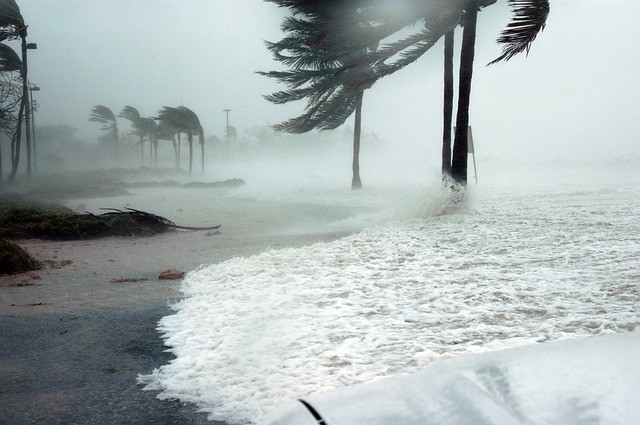In the US, the Atlantic hurricane season begins around the first of June and runs right through until the end of November. Ideally, this is the time to stay close to home and be prepared should the worse happen.
But what if you need to move or relocate during this time? It might not be an ideal scenario, and you might not have a choice, so what are the options, and how can you stay safe during such a natural disaster, should it happen?
Where do hurricanes hit the most in the US?
Atlantic hurricanes form over warm water in the tropics. Typically, they'll move west-northwest with the prevailing winds. This means that the US states most affected by the Atlantic hurricane season are along the southeastern US coast.
Florida is perhaps the biggest target, as it has the longest coastline. Hurricanes also tend to weaken as they reach the colder waters of the Northeast, which is why states such as Maine and Massachusetts experience far fewer.
Hurricanes can occur in the Pacific and the Atlantic, but they tend to travel northwest, away from the mainland. Here is a list of the top 10 hurricane states on record:
1. Florida: 120 hurricanes
2. Texas 64 hurricanes
3. North Carolina: 55 hurricanes
4. Louisiana: 54 hurricanes
5. South Carolina: 30 hurricanes
6. Alabama 24 hurricanes
7. Georgia 22 hurricanes
8. Mississippi 19 hurricanes
9. New York: 15 hurricanes
10. Massachusetts 12 hurricanes
If you ever find yourself relocating between any of these states, here are some tips on managing your move across the country should disaster strike.
Stay calm, you're not on your own
The important thing is not to panic. Keeping a clear head in an emergency is critical. Remember that any delays are going to be experienced by everyone around you.
Suppose the hurricane is on the scale of Hurricane Sandy, for example, that hit New York City on October 29, 2012. In that case, people all over the city are going to be facing incredible and unprecedented challenges.
When it comes to such a widespread disaster, moving could be an option you need to put on hold until the disaster is over. But remember that if you have to put your moving plans on hold, everything will be "on hold" until the wheels get spinning again.
Be packed and ready
If you live in or near a hurricane area, it's a good idea to make copies of proof of ownership documents of any property, not just your home, car, and boat. You can store these documents in a safe location that's not at risk of being damaged during the hurricane.
Before the hurricane starts, make sure to keep the following items hand, just in case you need them during an evacuation. You'll also need to store the items in something easy to carry, waterproof, and secure. Things you'll need to keep safe include:
-
Insurance policies
-
Birth certificates
-
Titles of ownership
-
Passports
-
Checkbooks
-
Health cards
-
Social security numbers
Minimize damage
If you have no choice but to move during hurricane season, you're going to have two homes to think about regarding damage control. There's not very much you can do about your future home before you take possession. Still, if it sustains significant damage, you might have to change your mind about taking possession or look for temporary living quarters until your new home is repaired and habitable.
It's also crucial to protect your current home. If you don't take the necessary precautions to board windows or preserve the structure where possible, you risk losing your security deposit or the buyer backing out.
Keep the lines of communication open
When you first learn that a hurricane could be on the way, call your moving company as they may be able to reschedule your moving day if you're moving during the off-season or a slow period. Contact present and future landlords to talk about your options.
If rescheduling isn't possible, communicating early and often means you can keep yourself informed of any changes and determine what the company's action plan is in case of an emergency.
Check your insurance coverage
Insurance is critical, and you need to make sure you're covered, especially if any of your possessions are in storage or out of your control during the hurricane. Find out whether the storage company will replace any of your belongings if the storage facility is flooded. Check what will happen if the moving truck is damaged with your belongings on board. For your protection and peace of mind, get everything documented.
Consider moving your car with an auto transport company
If you choose to ship a car across country during the hurricane season, there could be delays. Still, you can be confident that during bad weather, the safety of your vehicle and every other car on the transport carrier remains a top priority for the car shipping companies. The driver may be forced to move at a slower rate or wait until it is safe to transport your car.
The Atlantic hurricane season may not be the best time to move across the country, but it is possible if you follow these tips.
© 2024 NatureWorldNews.com All rights reserved. Do not reproduce without permission.
* This is a contributed article and this content does not necessarily represent the views of natureworldnews.com






